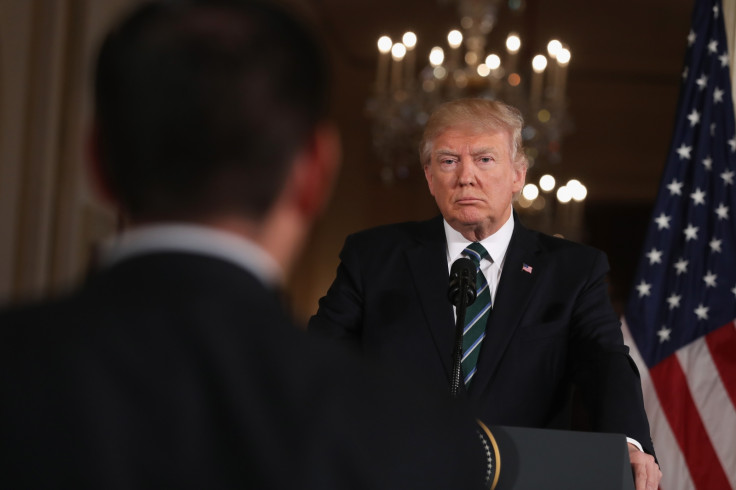Read full Nunes Memo: Trump claims 'shameful' FBI abuse of power in Russia investigation
KEY POINTS
- Memo alleges abuse of power by the FBI over Trump-Russia investigation.
- Democrats claim the memo is a dishonest ploy to undermine the ongoing investigation by Robert Mueller.
The Nunes Memo - alleging abuse of power by the FBI over the investigation into collusion between the Donald Trump 2016 presidential campaign and Russia - has been released by the House Intelligence Committee.
The four-page memo, with a cover letter from the White House counsel, claims that the FBI omitted information in its application for a wiretap on Trump advisor Carter Page. It claims this shows FBI political bias against Donald Trump, thus discrediting the ongoing investigation into the president's ties with Russia.
On 2 February, Trump gave his permission for the memo to be released, saying that some people should be "ashamed of themselves" and that the supposed bias was a "disgrace".
The memo argues that the application for surveillance was based on information in the Steele Dossier - produced by a British former spy Christoper Steele and funded in part by the Democratic Party - which alleged that Trump and his associates may have colluded with the Kremlin to win the 2016 presidential election.
The dossier claims that Page travelled to Russia in July 2016 to meet senior Russian officials as a Trump representative and discussed deals relating to sanctions, business opportunity and Russian interference in the election.
The memo says that Steele was "desperate that Donald Trump not get elected and was passionate about him not being president," noting this represents "clear evidence of Steele's bias".
The memo argues that without this disputed research, a surveillance warrant would not have been granted.
Devin Nunes, chairman of the House Intelligence Committee, said the memo's findings "represent a troubling breakdown of legal processes established to protect the American people from abuses".
Democrats have described the release of the memo as an attempt to undermine the ongoing investigation into Trump's Russia links by special counsel Robert Mueller.
Democrats argue that the memo cherry-picks classified intelligence to implicate deputy attorney general Rod Rosenstein - who appointed the special counsel to investigate potential links between Trump and Russia - in an FBI plot to surveil the Trump administration.
The Department of Justice called the release a "reckless" act, while some lawmakers have suggested the memo is simply a ploy to allow Trump to fire Rosenstein.
I've read both memos. What's clear to me is that the sole intent of the #NunesMemo is to give the Trump administration cover to fire Rosenstein.
— Ruben Gallego (@RepRubenGallego) February 1, 2018
The FBI issued a rare statement ahead of the memo's release saying it had "grave concerns" about the decision.





















